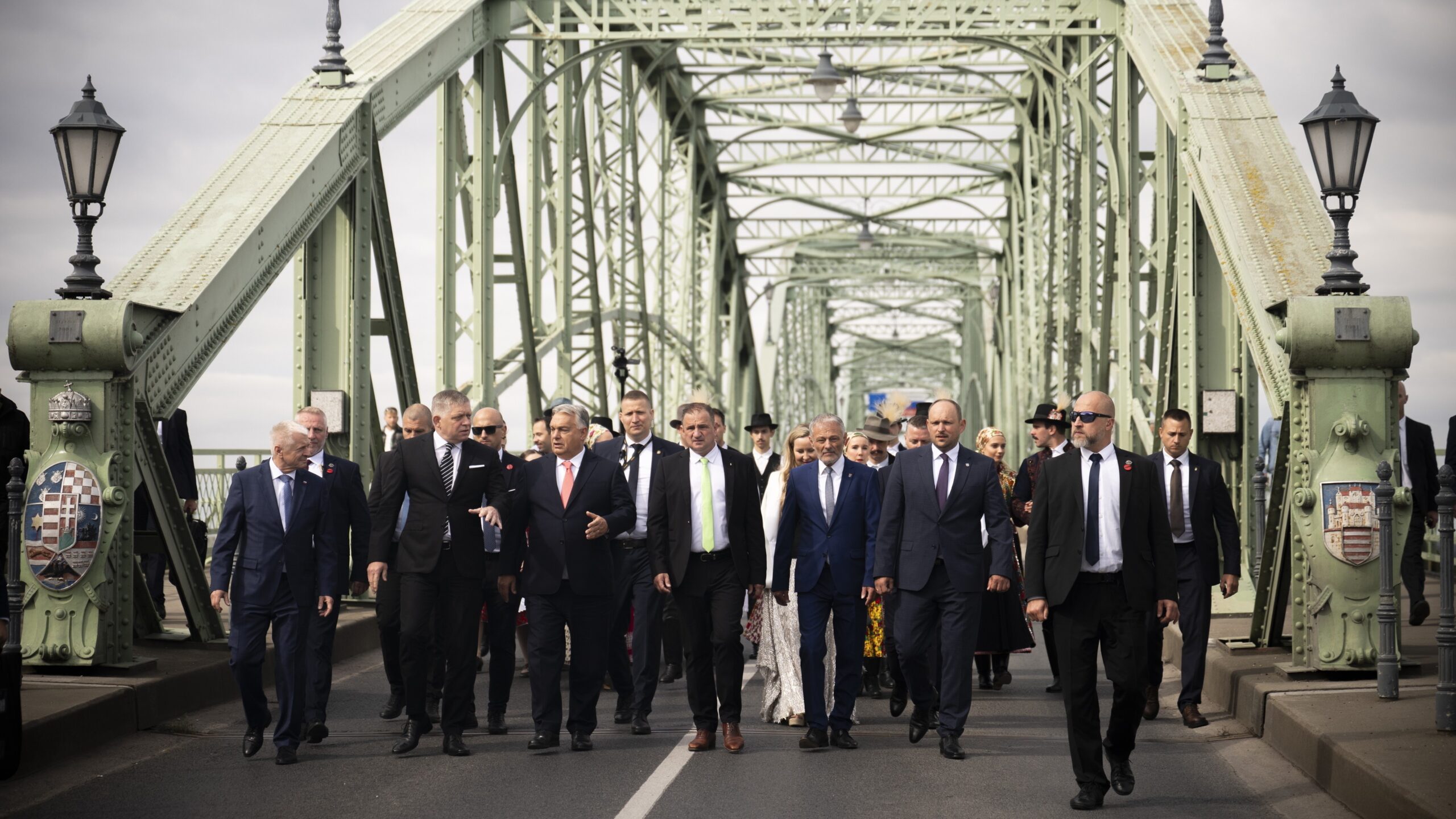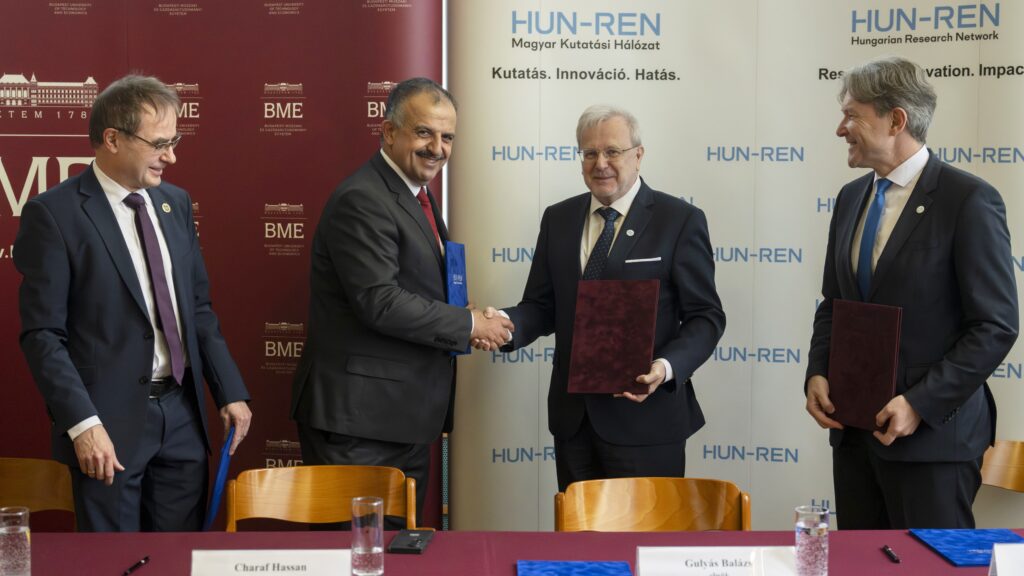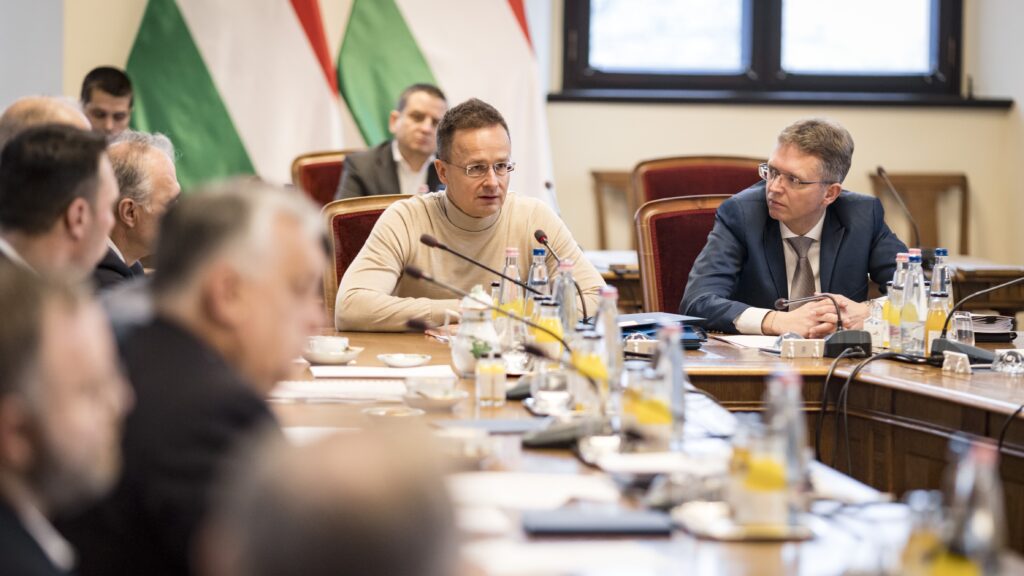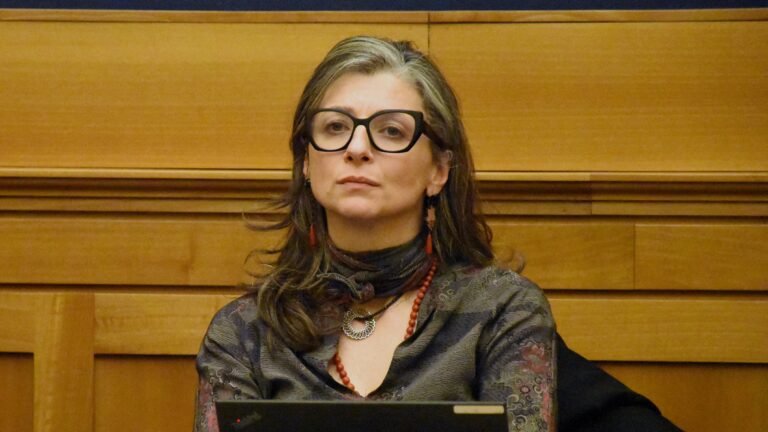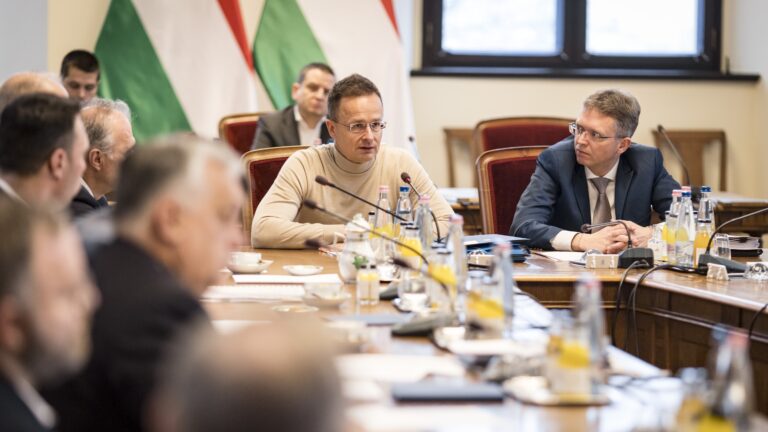Prime Minister Viktor Orbán called for calm and unity on Sunday in Esztergom at a ceremony marking the 130th anniversary of the Mária Valéria Bridge, joined by Slovak Prime Minister Robert Fico. Orbán said the times demand sobriety and composure, and repeated his belief in the power of love and solidarity.
He warned that forces tied to Brussels’s war policies are present across Central Europe, stirring unrest in Serbia and operating in Hungary as well. According to the prime minister, they are easy to recognize: aggressive, violent, threatening citizens with firearms at public meetings, intimidating priests at church doors, and spreading disinformation campaigns. Orbán described their activities as propaganda aimed at destabilization.
Orbán emphasized that Hungarians and Slovaks are connected not only by shared history and culture but also by common political challenges. He recalled the troubled past of the bridge, which was destroyed twice during the world wars and rebuilt as a symbol of reconciliation, expressing the will of both nations to prevent further conflict in Europe.
He argued that neither Hungarians nor Slovaks wanted to fight in the world wars, yet both peoples were forced into battle by imperial interests. The EU, he said, has since shifted from being a peace project to a war project, openly declaring the defeat of Russia as its main objective for the next decade. Orbán insisted that Hungarians do not wish to be dragged into such a mission, comparing Brussels’s rhetoric to the language of communism, where promises of freedom masked repression.
‘The EU, [Orbán] said, has…shifted from being a peace project to a war project’
The prime minister warned that ordinary people know what war means: young men sent to the front, resources drained for military purposes, economic hardship, and the destruction of livelihoods. For him, the bridge now stands as a symbol of rejecting this path and ensuring such devastation is never repeated.
Orbán and Fico agreed to move forward with plans to build another bridge between Esztergom and Párkány for heavy traffic, with preparations already underway. Orbán praised Fico as a leader who, whenever Slovakia falters, returns to set things right, calling him resilient and unyielding.
The Hungarian prime minister also congratulated Slovakia on its recent constitutional amendment defining marriage as a union between a man and a woman and recognizing only two sexes, noting with humour that Hungarian men have long campaigned for gender equality.
While acknowledging their different political affiliations internationally, Orbán said he values the presence of a national-based left in Slovakia, suggesting such an approach would make Hungary’s political life calmer as well.
Orbán concluded by underlining Esztergom’s special place in Hungarian history and by stressing his commitment to ensuring that peace and cooperation, not war and division, define Central Europe’s future.
Related articles:

